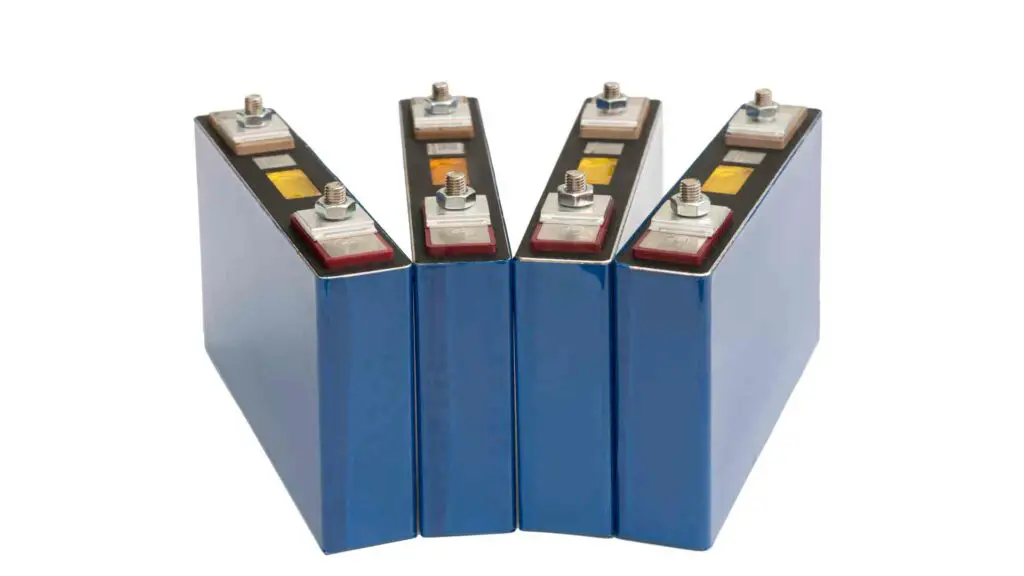The lithium iron phosphate (LFP) battery is a kind of lithium-ion battery that uses lithium iron phosphate as the cathode and a graphite carbon electrode with a metal backing as the anode.
These types of batteries are known for being more affordable, very safe, non-toxic, and having a long life.
They are increasingly used in electric vehicles (EVs), large-scale energy storage, and as backup power sources.
One significant advantage of LFP batteries is that they do not contain cobalt, making them more environmentally and socially responsible.
How Does LiFePO4 Battery Work?
Understanding how solar batteries work doesn’t need to be complicated.
- Inside the battery, a chemical reaction occurs.
- This reaction pushes electrons around, generating an electric current.
- When you connect the battery to a circuit, these electrons move through the circuit, creating electricity.
- Then all the electrons have been used, the battery can’t produce electricity anymore.
For the electrons to move, they need a starting point and a destination, which are provided by two key parts of the battery known as electrodes.
- The anode is the negatively charged electrode, acting as the source of electrons.
- The cathode is the positively charged electrode, serving as the destination for electrons.
This basic principle is the same for all batteries, even though the specific materials and reactions may vary between different types of batteries.
Benefits of Using LiFePO4 Batteries for Solar System
The solar lithium iron phosphate (LiFePO4) battery is celebrated for its longevity and robust cycle life.
This battery can go through many charge-discharge cycles, surpassing the endurance of other battery types.
This makes it a cost-effective and durable choice for storing solar energy.
Regarding safety, the LiFePO4 battery is superior because of its stable chemical composition, which is not prone to thermal runaway—a risk that is present in other types of lithium-ion batteries.
This safety is crucial in applications where constant, reliable power is essential.
In terms of energy storage, LiFePO4 batteries are very efficient, holding a considerable amount of energy in a small space.
This is particularly beneficial for solar power setups, which often have limited space for batteries but need maximum energy storage.
LiFePO4 batteries also boast a broad operational temperature range.
They perform reliably in extreme heat or cold, maintaining good performance levels.
This is especially important for solar systems, which may be exposed to varying weather conditions.
Finally, LiFePO4 batteries are more eco-friendly than many alternatives.
They use materials that are less damaging to the environment, contributing to the sustainable aspect of solar energy solutions.
This makes them a more attractive choice for those looking to minimize their ecological footprint.








